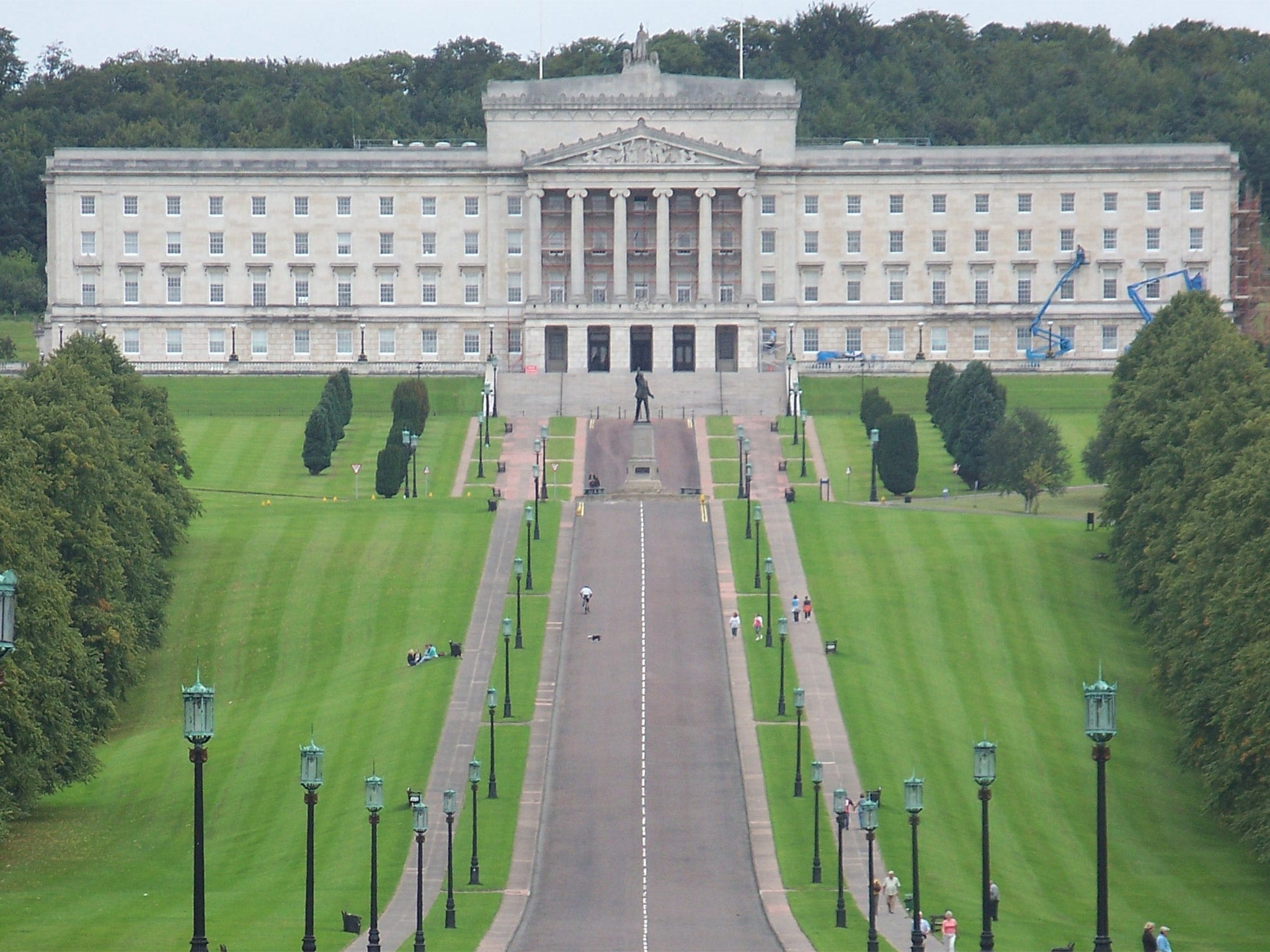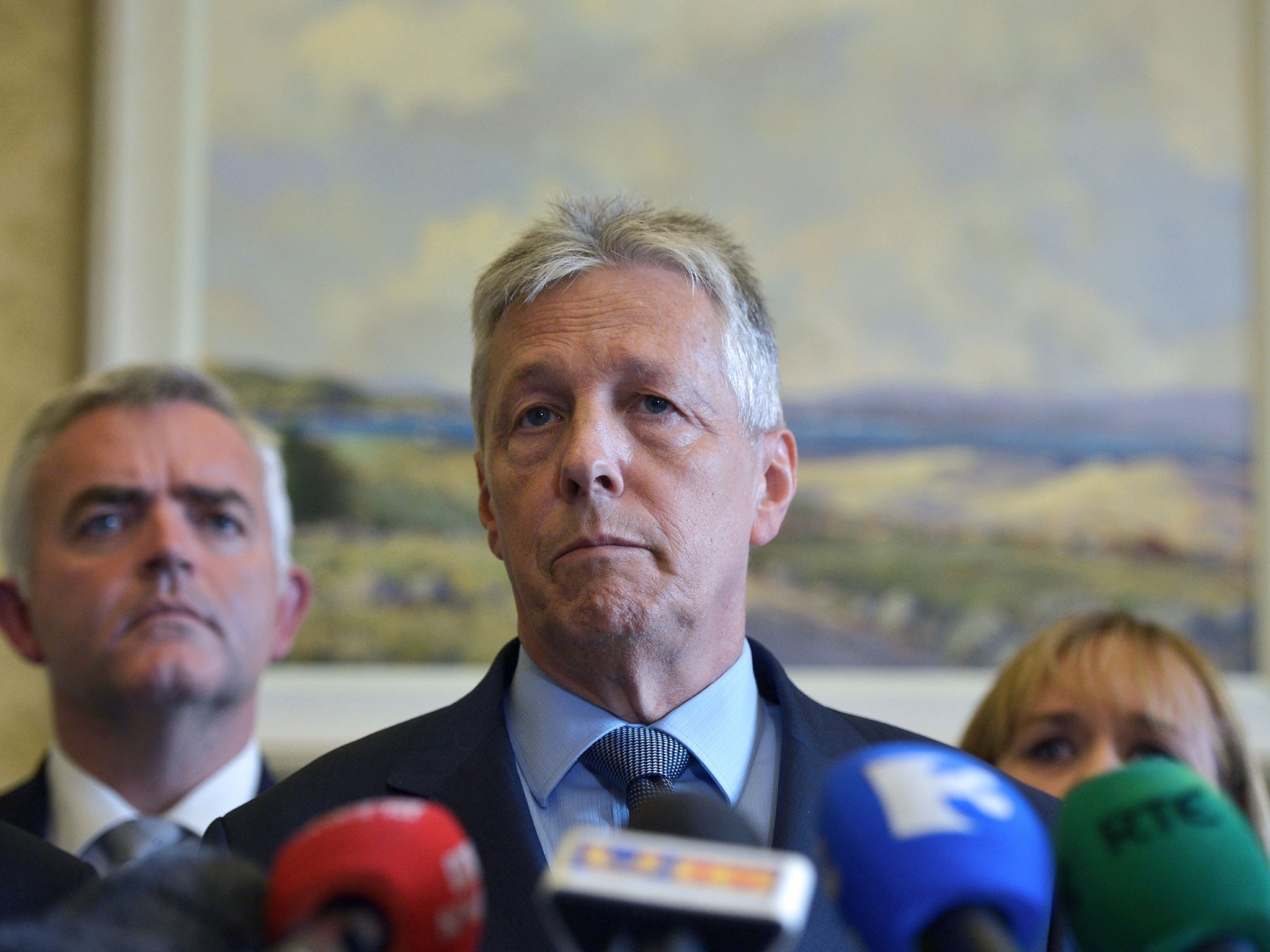Northern Ireland crisis: Independent authority to investigate paramilitary activity could be set up to prevent government collapse
The redesign of the former commission that initially monitored the IRA’s ceasefire and its arms decommissioning will be among the options discussed

Your support helps us to tell the story
From reproductive rights to climate change to Big Tech, The Independent is on the ground when the story is developing. Whether it's investigating the financials of Elon Musk's pro-Trump PAC or producing our latest documentary, 'The A Word', which shines a light on the American women fighting for reproductive rights, we know how important it is to parse out the facts from the messaging.
At such a critical moment in US history, we need reporters on the ground. Your donation allows us to keep sending journalists to speak to both sides of the story.
The Independent is trusted by Americans across the entire political spectrum. And unlike many other quality news outlets, we choose not to lock Americans out of our reporting and analysis with paywalls. We believe quality journalism should be available to everyone, paid for by those who can afford it.
Your support makes all the difference.A new independent authority that would investigate and monitor paramilitary activity in Northern Ireland could be set up to help head off the potential collapse of the Stormont government, the Northern Ireland Secretary has confirmed.
The redesign of the former commission that initially monitored the IRA’s ceasefire and its arms decommissioning, will be among the options discussed when talks between the provinces’ political parties are expected to resume on 14 September.
Theresa Villiers described the revival of the monitoring commission as a “credible” plan that would help close the widening political gap between the parties involved in Stormont’s power-sharing coalition. She described the current uncertainty as “very serious” and urged all sides to return to negotiations on 14 September.
The viability of the province’s executive remains under threat following the mass resignation on 10 September of the former first minister, Peter Robinson, and four other minister from his Democratic Union Party (DUP).

Although Mr Robinson remains in charge of the largest unionist group in Stormont, he appointed the DUP’s finance minister, Arlene Foster, as acting FM. Now the sole DUP member of the Northern Ireland executive, Ms Foster said there was a “cancer” at heart of the government that had to be tackled before business could resume.
Mr Robinson’s resignation and the crisis that now increases the possibility of a return to rule from Westminster, was sparked by a murder this summer which had alleged links to the IRA.
Sinn Fein, the Irish republican party that is part of the Stormont coalition, have claimed the IRA no longer exists.
However the chief of the Police Service of Northern Ireland, George Hamilton, claimed that current members of the IRA had been involved in the killing of a former IRA man, Kevin McGuigan.
Lord Trimble, the former first minister, said the DUP resignations were an attempt to force the UK government to take action. He backed the call for a paramilitary monitoring commission to be brought back, adding that the killings of Mr McGuigan and the earlier linked murder of a former IRA commander, Gerard Davison, could not allowed to pass without detailed investigation. If this happened, he said : “It would in effect be giving them (the Republican movement) a licence to murder.”
Mr Robinson resigned after failing to win support in Stormont for the executive to be adjourned while crisis talks took place. Downing Street also decided against ordering a suspension.
Mr Cameron said it was “unacceptable” for paramilitary groups to be active in any part of the UK, but he said it would not be right for the British Government to step in. He added “I want these devolved institutions to succeed” and urged Northern Ireland’s politicians to “go the extra mile, an extra ten miles if necessary” to help end the crisis.
Ireland’s Taoiseach, Enda Kennedy, said the people of Northern Ireland did not want their future blocked by what he called “the politics of the past”. He warned that if the province’s political institutions did collapse, “it would be a very long time” before they would return to normal.
Join our commenting forum
Join thought-provoking conversations, follow other Independent readers and see their replies
Comments